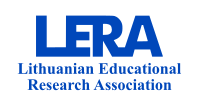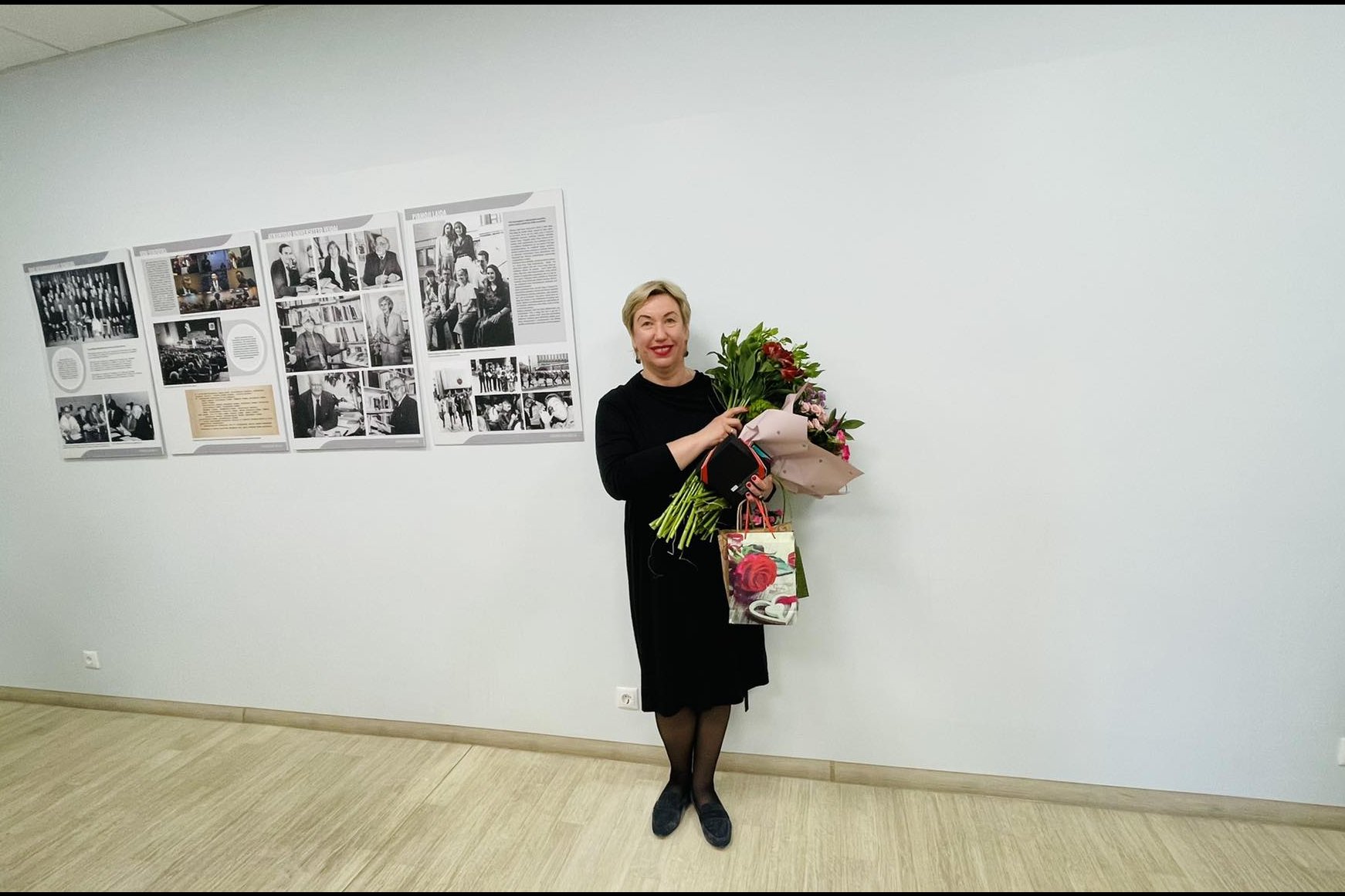
Congratulations to the new PhD student Yelizaveta Tumlovskaja on the successful defence of her doctoral dissertation The Evaluation of the Quality of Performance of General Education Schools: Between Control and Freedom (Educational Sciences (S 007), scientific supervisers prof. dr. Dalia Survutaitė (2018-2019) and prof. dr. Jonas Rušcus (2019-2023)), and on the acquiring PhD degree in Social Sciences in the field of Educational Sciences.
The dissertation is available at Vytautas Magnus University and Lithuanian National M. Mažvydas Library.
The dissertation is available at 11 Studentų g. 11, Akademy, Kaunas district, Lithuania.
A brief annotation of the doctoral thesis is presented below:
The dissertation presents a critical analysis of the mechanism of dual assessment and external evaluation of Lithuanian general education schools. In the theoretical part, the ontological nature of the evaluation of general education schools is analysed on the basis of Sartre’s (2000) philosophical concepts of the Panopticon and Waldensianism (2000), the Other View and Foucault’s (1998, 2005) philosophical concepts of Panopticon and Walden. The mechanism of school evaluation is analysed from the philosophical and from the managerial sciences. The theoretical analysis reveals a contradiction of approaches to the evaluation mechanism: from the philosophical point of view, evaluation is a tool of control based on a power relationship and cannot promote freedom. From a management point of view, it is a prerequisite for quality assurance.
The methodology section introduces the integrated research strategy, identifies and justifies the choice of research strategy, discusses the principles of sampling and participant selection, the research process; introduces the quality assurance of the research results, discusses the ethics of the research and identifies the limitations of the research. Methods of analysing survey data are presented and justified.
The empirical study revealed a relatively positive attitude of the participants towards the idea of evaluation, the necessity of evaluation as a part of the management cycle, and the impact of the evaluation mechanism on the recognition of value principles in practice. However, the analysis of the participants’ experiences revealed a wide range of problems related to the implementation and experience of evaluation. Evaluation procedures do not encourage teachers to work independently and creatively; on the contrary, they feel trapped in bureaucratic regulations and see school evaluation as a disturbing mechanism of bureaucratic control, which destroys teacher and school creativity and freedom.
The results of the study suggest that the evaluation of Lithuanian mainstream schools needs to change, empowering the school community and strengthening the practice and culture of evaluation. The dissertation presents systemic and school evaluation change models that could provide an alternative to the current school evaluation mechanism. Recommendations for improving the evaluation mechanism are made on the basis of the results of the study.
Dissertation Defence Council:
Chair – prof. Lina Kaminskienė (Vytautas Magnus University, Academy of Education, Social Sciences, Education S 007).
prof. Natalija Mažeikienė (Vytautas Magnus University Academy of Education, Social Sciences, Education S 007),
prof. Rimantas Želvys (Vilnius University, Social Sciences, Education S 007),
assoc. prof. Berita Simonaitienė (Kaunas University of Technology, Social Sciences, Education S 007),
dr. Zuzanna Sury (Institute of Pedagogy, Jagiellonian University in Krakow, Poland, Social Sciences, Education S 007)
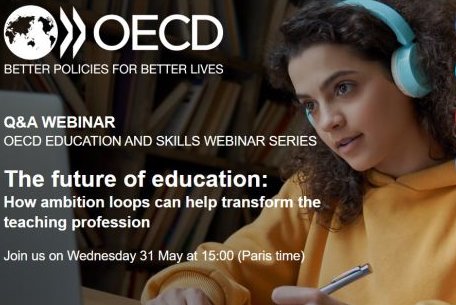
On the 31st of May, in this year at 3:00 p.m. (Paris time) OECD Education Q&A Webinar ”The Future of Education: How Ambition Loops Can Help Transform the Teaching Profession” will be held.
Collaboration is crucial to strengthening teaching practices and learning experiences in the classroom. But how can we systematically improve cooperation between schools and teachers? A part of the answer is ambition loops: agreed objectives across schools, the educational sector and the wider community that, if achieved, reinforce each other and create positive change.
In this webinar we will speak to experts in order to explore ambitions and potential prosperity for the future of the teaching profession.
Speakers include:
- Debbie Pushor, Full Professor, Department of Curriculum Studies, University of Saskatchewan, Canada
- John Fischetti, Professor and Pro Vice-Chancellor, College of Human and Social Futures, University of Newcastle, Australia
- Tony Hall, Personal Professor of Education, School of Education & Director of Educational Design Research, Designing Futures, University of Galway, Ireland
Moderated by Claire Shewbridge, Project leader and analyst at OECD Directorate for Education and Skills, and Jason McGrath, Analyst at OECD Directorate for Education and Skills.
Registration link: https://meetoecd1.zoom.us/webinar/register/WN_0z7I9t8ASkOHz_7i2npkYg#/registration
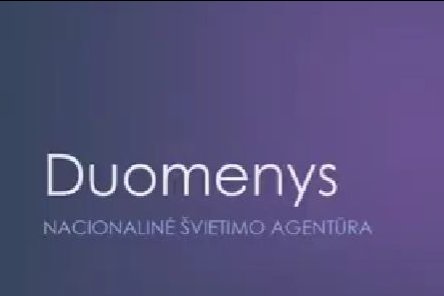
On the 25th of May in 2023, the XXV Education Forum “Open Educational Data: How Can it be Used More Effectively in Research and to Improve Educational Practice?” The keynote speech “National Education Agency Data and Its Use” was delivered by Eduardas Daujotis (Director of the NEA Infrastructure Development Department) and Evaldas Bakonis (Head of the NEA Education Policy Analysis and Research Unit).
The discussion was attended by dr. Aleksei Iurasov (Professor, Vilnius University of Technology), dr. Agnė Brandišauskienė (Senior Researcher, Institute of Education, Vytautas Magnus University, Academy of Education), dr. Arūnas Emeljanovas (Professor, Lithuanian University of Sport), prof. dr. Audronė Jakaitienė (Head of the Interdisciplinary Statistical Research Group at the Institute of Data Science and Digital Technologies of Vilnius University, Chief Researcher). Rimantas Žylius (Advisor to the Prime Minister of the Republic of Lithuania). The forum was moderated by dr. Asta Ranonytė (National Education Agency, Deputy Director) and dr. Robert Leshchinskij (Dean of the Faculty of Studies, Faculty of Creative Industries, Vilnius TECH, member of the Board of LERA).The full recording of the forum can be viewed on the Youtube channel at https://www.youtube.com/watch?
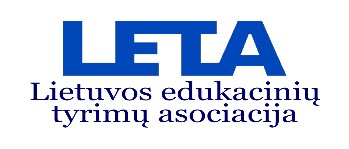
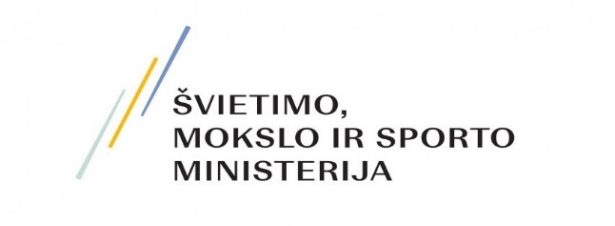

We remind you about the upcoming forum, which will be held on May 25. 3.00-5.00 p.m.
We are kindly invite education and training researchers, postgraduates, doctoral students, lecturers, education and social policy makers, school administrators, representatives of teachers’ associations and NGOs, teachers, teacher trainers, and all those who are interested in education and training issues to participate.

About the key-note speaker:
Evaldas Bakonis is the Head of the Education Policy Analysis and Research Unit at the Monitoring and Evaluation Department of the National Education Agency, and the Coordinator of the OECD Education Network INES NESLI in Lithuania. For the last decade, Evaldas Bakonis has been interested in the field of education policy formulation, implementation of education decisions, and measurement of education quality. During his long career in education, E. Bakonis has published about 20 textbooks and teaching aids for general education schools, about 20 scientific articles on history and history didactics, about 100 other publications.
| Date | 25th of May, 2023 |
| Time | 3.00 p.m.-5.00 p.m. |
| Translation |
Zoom: https://liedm.zoom.us/j/4694961224 |
| Moderators | dr. Asta Ranonytė, National Education Agency, Deputy Director; dr. Robert Leshchinskij, Dean of the Faculty of Creative Industries, VILNIUS TECH, member of the LETA Board. |
| Key-note | Data from the National Education Agency and How to Use Them. Eduardas Daujotis, Director of the Infrastructure Development Department of the National Education Agency, and Evaldas Bakonis, Head of the Education Policy Analysis and Research Division of the National Education Agency. |
| Panellists | dr. Aleksei Iurasov, Professor at Vilnius TECH dr. Agnė Brandišauskienė, Senior Researcher, Institute of Education, Vytautas Magnus University, Academy of Education dr. Arūnas Emeljanovas, Professor, Lithuanian Sport University prof. dr. Audronė Jakaitienė, Head of the Interdisciplinary Statistical Research Group, Senior Researcher, Institute of Data Science and Digital Technologies, Vilnius University Rimantas Žylius, Advisor to the Prime Minister of the Republic of Lithuania |
| Conclusions | dr. Asta Ranonytė, dr. Robert Leščinskij |
Forum Organisers
| Scientific and Organising Committee of the XXV Education Forum | Head – prof. dr. Liudmila Rupšienė, President of LERA. Consultant – Dr. Loreta Žadeikaitė, Senior Advisor, Department of Studies, Science and Technology, Ministry of Education, Science and Sport. Members: Rūta Krasauskienė, Director of the NEA; Dr. Eglė Pranckūnienė, LERA Vice President, Founder and Director of the School Improvement Centre Dr. Asta Ranonytė, Deputy Director of the NEA; Dr. Robert Leščinskij, Dean of the Faculty of Creative Industries, Vilnius TECH, member of the LERA Board. |
| Contact information | LERA, e-mail: [email protected], tel. 8 686 39 529; NEA Communications and Contact Department, tel. 8 658 18061, e-mail: [email protected]. |

The Seimas Committee on the Future will meet on 26 May from 09.00 a.m. to 10.30 a.m.
The Future Council will discuss the “Strategic Vision for Education”.
For more information: https://www.lrs.lt/sip/portal.show?p_r=35448&p_k=1&p_event_id=24018
The following members are invited to attend:
Jurgita Šiugždinienė, Minister of Education, Science, and Sport
Artūras Žukauskas, Chairman of the Seimas Committee on Education and Science
Mindaugas Macijauskas, State Auditor
Jolanta Karpavičienė, Senior Advisor to the President of the Republic, Head of the Education, Science and Culture Group
Aistė Kairienė, Adviser to the Prime Minister on Education, Science, Innovation and Non-Governmental Organisations
Darius Žeruolis, Adviser to the Prime Minister on Strategic Planning, Public Administration, Reform and Change Management
Saulė Mačiukaitė-Žvinienė, President of the Lithuanian Education Council
Rūta Krasauskienė, Director of the National Education Agency
Nerija Putinaitė, Associate Professor, Institute of International Relations and Political Science, Vilnius University
Lilija Duoblienė, professor of Vilnius University
Mindaugas Sinkevičius, President of the Association of Lithuanian Municipalities
Unė Kaunaitė, Head of Vilnius Centre for Educational Progress (EDU Vilnius)
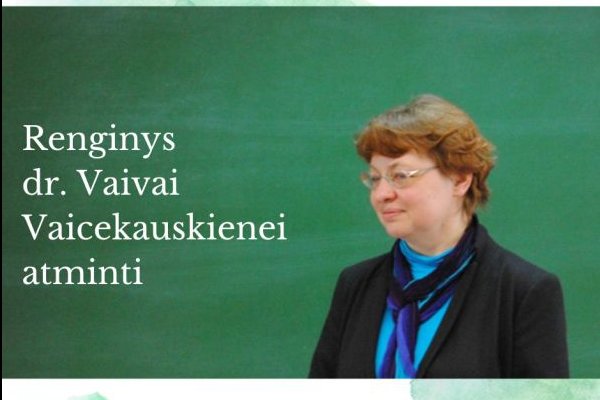
In 2023 dr. Vaiva Vaicekauskienė would have turned 60 years old. During her prematurely ended life, Vaiva left a strong imprint on Lithuanian education. We are kindly invite you to the afternoon dedicated to the memory of Vaiva, which will be held in 2023 of May 29th, 3.30 p.m. In the School Improvement Center (Vilnius St. 39). We will talk about Vaiva’s legacy in creating the Good School conception and other strategic education documents, preparing general programs and textbooks for the subject of ethics, contributing to the conceptualization and practical implementation of education policy.
Vaiva’s friends, colleagues will share their insights. In this will participate Violeta Jonynienė, dr. Ramutė Bruzgelevičienė, Vaidas Bacys, Virginija Būdienė, Gražvydas Kazakevičius, dr. Daiva Penkauskienė, dr. Eglė Pranckūnienė and other participants of the event.
We are looking forward to seeing everyone who would like to come together and remember the bright memory of Vaiva.
Please confirm your attendance: https://forms.gle/FfQoosr4ZYDHP8aH7
ORGANISERS:
Centre for Contemporary Didactics
Centre for School Improvement

Congratulations to the new PhD Lina Vaitkutė on successfully defending her doctoral thesis Implementation of Competence-Based Professional Education Content and its Implications for the Practice and Competences of Professional Teachers in Italy and Lithuania (Educational Science (S 007), scientific supervisor – prof. dr.Vidmantas Tūtlys ) and after acquiring doctoral degree of Social Sciences in the field of Educational Science.
The dissertation can be viewed at Vytautas Magnus University and Lithuanian National M. Mažvydas Library. The dissertation can be viewed at 11 Studentų St., Academy, district Kaunas.
A brief annotation of the doctoral thesis is presented bellow.
The dissertation offers a new perspective on the contemporarity and relevance of the competency-based (CB) training content for the practice of vocational training and students, its essential elements at the theoretical-conceptual and regulatory levels, and possible options. The aim of the study was to reveal the processes of implementing the content of CB professional education and their problem areas in the school systems of professional education in Lithuania and Italy, assessing the related changes in the activities of teachers of the profession and their impact on the needs of competences.
In order to study the phenomenon of education in the natural environment, a qualitative research paradigm was used. The analysis of scientific sources, the comparative analysis of educational content reforms, policy documents, the institutional framework for the training of professional teachers and instructors, and the comparative empirical study of the implementation of CB educational content in Lithuania and Italy were used to collect research data. The data of the latter were collected during semi-structured interviews with 48 teachers of the profession and representatives of the administration in two countries, qualitative content analysis was used for their analysis.
The study made it possible to conceptualise the implementation of competence-based educational content in the context of the general system of skill formation, under the influence of constraining and supporting external, organizational and personal factors. Mastering the curriculum was revealed as a complex structure of professional teachers’ activities, starting with the interpretation and translation of the goals of the intended curriculum and ending with the evaluation of the competences acquired by the students. The basis of these activities and the main transformation is the collegial work and cooperation of teachers.
Dissertation Defence Council:
Chair- assoc. prof. dr. Aušra Rutkienė, Vytautas Magnus University, Social Sciences, Education S 007,
Prof. dr. Lina Kaminskienė, Vytautas Magnus University, Social Sciences, Education S 007,
Assoc. prof. dr. Rita Mičiulienė , Vytautas Magnus University, Social Sciences, Education S 007,
Assoc. prof. dr. Judita Kasperiūnienė, Vytautas Magnus University, Social Sciences, Education S 007,
Prof. dr. Paolo Sorzio, University of Trieste, Italy. social sciences, education S 007, Prof. Dr. Francesco Magni, University of Bergamo, Italy. social sciences, education S 007,

On the 12th of May, this year on the basis of the XXIV Education Forum “Leadership in Lithuanian Schools: at the Crossroads of Traditional and Critical Approaches”, the article “Effective Leadership in Education: Challenges are Charting New Directions” was published in “Education News”.
We are kindly invite you to read!
The Ministry of Education, Science and Sport and the Lithuanian Educational Research Association organised the XXIV Education Forum, inviting educational researchers, doctoral students, analysts, heads of educational institutions, teachers, representatives of municipal education departments and regional teacher education centres, non-formal education specialists, and all those who are interested in the problems of educational leadership and possible solutions to them.
The Forum brought together three presentations on the topic of leadership in education, addressing important issues in this field from different perspectives, discussing the challenges of change, and proposing solutions based on experience and insights.
Read more: https://www.svietimonaujienos.lt/veiksminga-lyderyste-svietime-issukiai-brezia-naujas-kryptis
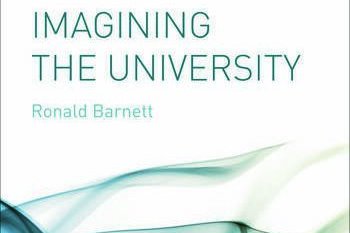
We are kindly invite you to participate in a cycle of seminars of Ronald Barnett. Ronald Barnett is Emeritus Professor of Higher Education at the Institute of Education, University College London (UCL), having served as Dean and Vice-Chancellor. He was President of the Higher Education Research Society, and was awarded the inaugural prize by the European Educational Research Association for his “outstanding contribution to higher education research, policy and practice”. He has been cited more than 25,000 times in the literature and has been a guiding force in the philosophy of higher education. He is described as a thought leader and a scholar in a higher education.
12-19 May 2023 Ronald Barnett and will give a series of presentations, in which can be heard online or in person.
The programme of the Ronald Barnett Seminar Series is available in English below:
1. Hybrid version (online access available; for those who plan to attend in-person, free shuttle bus service for all participants (including external guests) will be provided between the University Station and the EdUHK Taipo campus during the designated period on that day):
May 16, 6-7.30pm – DVP Lecture: „Realising the Ecological University: A Feasible Utopia“. EdUHK (D1-LP-04), Online: https://eduhk.zoom.us/j/94440962348
Registration: https://www.eduhkdvp.com/dvp2023-lecture-1
2.Open seminars (in-person only):
May 12, 2-3 pm – Open Seminar: „“Where are the big ideas of the university? On the distinction between leadership and management in higher education”. EdUHK (B4-LP-10), Register: https://forms.gle/hrqUFA9cvZfmRnHc8
May 15, 12-1pm – Open Seminar: „“Proclaiming the philosophy of education”. EdUHK (B4-LP-10), Register: https://forms.gle/hrqUFA9cvZfmRnHc8
May 17, 12-1pm – Open Seminar: “Being an academic – and being publicity minded”. EdUHK (D2-LP-01), Register: https://forms.gle/hrqUFA9cvZfmRnHc8
May 18, 11:30-12:30pm – Interactive seminar with postgraduate students (further inquiries to be sent to [email protected] or [email protected])
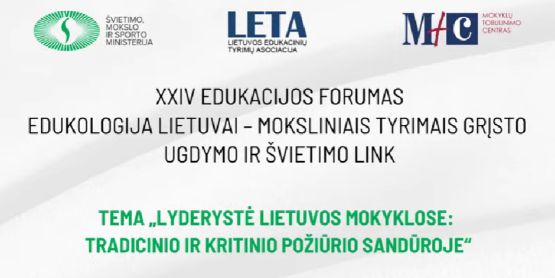
On the 27th of April, 2023, the XXVI Education Forum “Leadership in Lithuanian Schools: at the Crossroads of Traditional and Critical Approaches” was held. The theme of leadership was presented by key-note speakers: prof. habil. dr. Vilma Žydžiūnaitė (Institute of Educational Research, Academy of Education, Vytautas Magnus University), dr. Dalia Dambrauskienė (Principal of Šiauliai Centre Primary School), dr. doc. Rytis Komičius (PhD student at ISM University of Management and Economics, Director of Vilnius Vytautas Magnus Gymnasium).
Prof. hab. dr. Vilma Žydžiūnaitė gave a presentation on “Directions of Teacher Leadership for the Present Future: Accelerating Technological Change, Reduced Attention Span of Students, and Holistic Growth of Teachers“, dr. Dalia Dambrauskienė gave a presentation on “Implementation of Shared Leadership in Educational Institutions”, and Phd student Rytis Komičius gave a presentation on “The Role of Triggers in the Development of Leadership Competences”.
In the discussion participated dr. Dalia Dambrauskienė, PhD student Rytis Komičius, Audronė Razmantienė (Ministry of Education, Science, and Sport ). The forum was summarised and moderated by dr. Lina Bairašauskienė (Lecturer at Mykolas Romeris University, Director of Vilnius Maironis Pro-Gymnasium, Chair of the Lithuanian Educational Research Association, Education and Leadership Network), dr. Eglė Pranckūnienė (Head of the Centre for School Improvement, Researcher at Klaipėda University, Vice President of Lithuanian Educational Research Association). The full recording of the forum can be viewed on Youtube at: https://www.youtube.com/watch?v=nsKJsEBv7FA


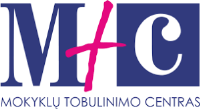
We are kindly remind you that the Educational Forum “Leadership in Lithuanian Schools: at the Crossroads of Traditional and Critical Approaches” will take place on 27 April 2023, 3.00-5.00 p.m.
We are kindly invite researchers, doctoral students, analysts, managers and teachers of educational institutions, representatives of municipal education departments and regional teacher education centers, representatives of non-formal education institutions, everyone who is concerned with the issue of educational leadership to participate.
| Date | 27 th of April, 2023 |
| Time | 3.00p.m.-5.00p.m. |
| Connecting link |
https://us02web.zoom.us/j/86900898201?pwd=YkEyQWVVc1UvenVxdDl2eTBNUWxndz09 https://www.youtube.com/watch?v=YgoMta1PXAc (live broadcast) |
| Moderators | dr. Lina Bairašauskienė, lecturer at Mykolas Romeris University, director of Vilnius Maironis pro-gymnasium, Chairp of the Education and Leadership Network of the Lithuanian Educational Research Association dr. Eglė Pranckūnienė, Head of the School Improvement Center, researcher at Klaipėda University, vice president of the Lithuanian Educational Research Association |
| Forum programme | |
| Moderators’ introduction | |
| 3.00p.m.-3.10p.m. | Introduction of new research on leadership |
| 3.10p.m-3.40 p.m. | CURRENT FUTURE DIRECTIONS OF TEACHER LEADERSHIP: ACCELERATED USE OF TECHNOLOGY, DECREASED STUDENT ATTENTION, AND HOLISTIC TEACHER DEVELOPMENT Prof. habilitated dr. Vilma Žydžiūnaitė, Educational Research Institute, Academy of Education, Vytautas the Great Universit |
| 3.40p.m.-3.50p.m. | IMPLEMENTING SHARED LEADERSHIP IN EDUCATIONAL INSTITUTIONS Dr. Dalia Dambrauskienė, Director of Šiauliai Centre Primary School |
| 3.50p.m.-4.05 p.m. | THE ROLE OF TRIGGERS IN LEARNING LEADERSHIP COMPETENCES PhD student Rytis Komičius, ISM University of Management and Economics, Director of Vilnius Vytautas Magnus Gymnasium |
| Discussion | |
| 4.05p.m.-4.45 p.m. | Participants: Prof. hab. dr. Vilma Žydžiūnaitė, dr. Dalia Dambrauskienė, Phd student Rytis Komičius, Audronė Razmantienė (Ministry of Education, Science and Sport), dr. Loreta Kačiušytė-Skramtai (MSP), leadership expert doc. dr. Gintautas Cibulskas (KTU). |
| 4.45p.m.-5.00p.m. | Summary of the Forum. Prof. Dr. Jolanta Urbanovič, Advisor to the President of the Republic of Lithuania and moderator of the event, Dr. Lina Bairašauskienė, Dr. Eglė Pranckūnienė. |
| Contact information | e-mail.[email protected], tel. 8 686 39 529; e-mal.[email protected], tel. 8 655 81519 |
During the Forum, videos and/or photographs will be taken and information will be published on LERA, Ministry of Educaton, Science, and Sport, School Improvement Centre channels.
About key-note speakers
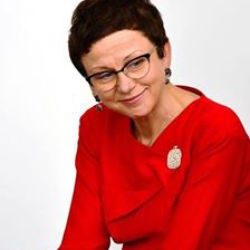
Prof. dr. Vilma Žydžiūnaitė is a professor at Vytautas Magnus University, a beginner in the academic promotion of qualitative research methodology, the International Summer School on Grounded Theory and qualitative research in Lithuania. She holds 2 Master’s degrees in Education (VMU) and Nursing (Karlskrona Technical Institute, Sweden) and 2 Doctoral degrees in Education (KTU) and Nursing (Tampere University, Finland). Head of the School of Social Researcher, she has conducted more than 150 original methodological seminars for scientists, doctoral students, researchers, educators, nurses in Lithuania and internationally. She has won awards for the highest level of scientific production, best scientific presentations at scientific events abroad. Her research interests include educational management and leadership, higher education, professional identity, professional philosophy and values, qualitative research methodology.
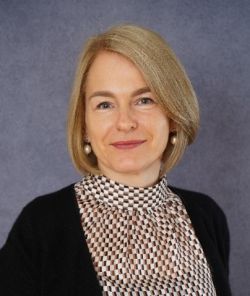
Dr. Dalia Dambrauskienė – Director of Šiauliai Centre Primary School, Member of the Council of the Lithuanian Association of Heads of Preschool Education Institutions, Head of the Šiauliai City Municipality Educational Institutions (25 years of managerial experience), assessor of the Šiauliai City Municipality Educational Centre’s Qualification Improvement Programmes, developer of Qualification Improvement Programmes, and lecturer.
Dalia has two Master’s degrees: in Education from Šiauliai University and in Management (Educational Leadership Programme) from ISM University of Management and Economics.
In 2021 she will defend her dissertation in the field of management in social sciences at VU Šiauliai Academy.
Research area – leadership and change management.
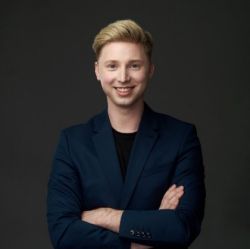
Rytis Komičius is a doctoral student at the ISM University of Management and Economics, director of Vytautas Magnus Gymnasium in Vilnius, initiator and participant of national and international educational projects and conferences, external evaluator of schools, lecturer and organizer of teacher training seminars. Rytis has obtained four master’s degrees: humanities at LCC International University, business and management at Lithuanian University of Education, social work at Vilnius University, educational leadership at ISM University of Management and Economics. The field of interdisciplinary research (management, educology, psychology) – training and payback: processes of overcoming past thinking by acquiring new leadership competencies: emotional (EQ), intellectual (IQ) and managerial (MQ).
Participants of the discussion and moderators
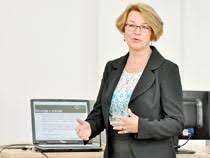
Audronė Razmantienė
Advisor of the Pedagogical Department of Ministry of Education, Science, and Sport.

KTU assoc. prof. Gintautas Cibulskas
Leadership expert in education, sports and other fields
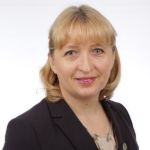
Dr. Loreta Kačiusytė-Skramtai
Education expert of Millennium Schools Program, external evaluator of schools
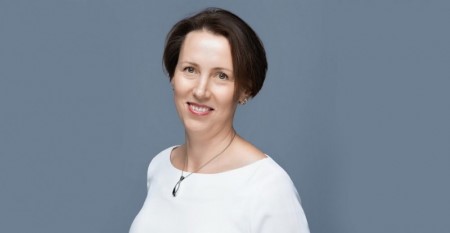
Prof. Dr. Jolanta Urbanovič
Advisor to the President of the Republic of Lithuania, researcher in leadership and management
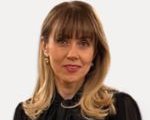
dr. Lina Bairašauskienė
Lecturer at Mykolas Romeris University, director of Vilnius Maironis pro-gymnasium, chair of the Education and Leadership Network of the Lithuanian Educational Research Association

Dr. Eglė Pranckūnienė
Head of the School Improvement Center, researcher at Klaipėda University, vice president of the Lithuanian Educational Research Association
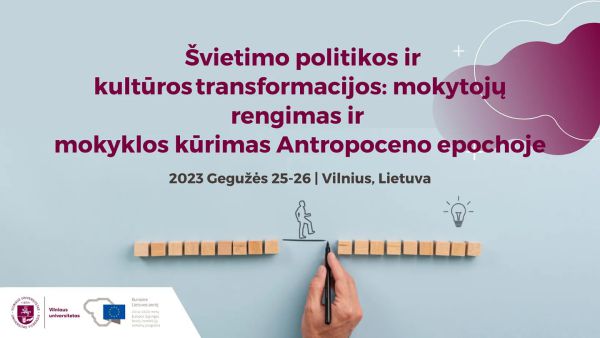
VU FSF Institute of Educational Sciences Conference 2023: „Transformations in Education Policy and Culture: Teacher Education and School Creation in the Anthropocene“.
On May 25-26, the International Research-Practical Conference „Transformations in Education Policy and Culture: Teacher Education and School Creation in the Anthropocene“ will be organized by the Institute of Educational Sciences of Vilnius. University.
The conference aims to identify the factors of education policy and culture that influence current educational realities and consider how these factors transform education policy and culture. The conference also seeks to explore how education policymakers, educational science researchers, teacher trainers, and educational practitioners can contribute to solving problems in general education schools in the Anthropocene epoch and raise questions about the challenges awaiting education in the future.
The international conference will address the future of general education in the Anthropocene, the development of inclusive learning, STEAM and other didactics, teacher training policies and practices, and other relevant issues. In addition, plenary presentations will be given by researchers from the Institute of Educational Sciences and the Šiauliai Academy, as well as guests from the universities of Dublin, Utrecht, Granada, and Leipzig.
Registration: https://bit.ly/40JOc89
More information about the international conference: https://bit.ly/3Km1NLQ
https://www.fsf.vu.lt/en/research-institute-of-educational-sciences/international-conference-2023#about
There is no participation fee.
Optimization of the network of higher education institutions and improvement of the quality of studies by merging Šiauliai University and Vilnius University” No. 09.3.1-ESFA-V-738-03-0001. The project is funded by the European Social Fund.

Dear ones,
May peace, warmth, joy and faith come to your home!
Happy Easter!
LERA team
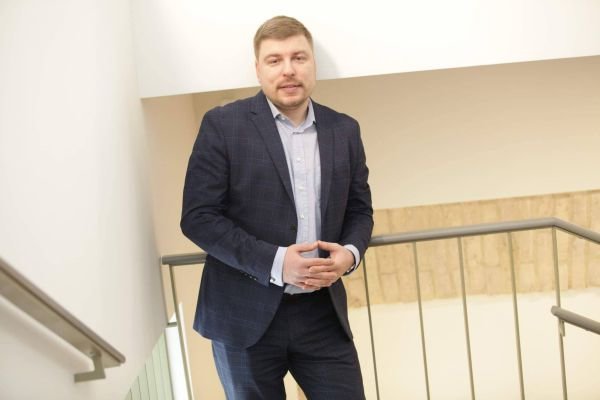
Congratulations to dr. Robert Leshchinskij on becoming Chair of the ICT and Education Network and LERA board member.
We wish all the best in your creative endeavours and inexhaustible sources of inspiration!
Robert’s journey at the Faculty of Creative Industries of Vilnius TECH University started almost 10 years ago, when he defended his master thesis. That defence went well and Robert received the prize for the best Master’s thesis. At that time, he got an offer to try his hand at university, as he already had a lot of teaching experience at school. Robert was also actively involved in other activities at the faculty, especially related to his studies. As he was very interested in active and student-centred learning methods, he started to share his good practices with his colleagues in the department and later with his colleagues in the faculty, both through the activities of the Educational Competence Group (ECG), and individually by advising teachers on study issues and sharing his knowledge from the training sessions he attended regularly. Robert is now the Dean of Studies at the Faculty of Creative Industries (KIF).

The National Education Agency (NEA), in cooperation with the Lithuanian Educational Research Association (LERA), organised an education forum “Challenges for Education and Training in the Anthropocene Epoch – What Should We Focus on?”. It brought together education and education researchers, doctoral students, teachers, education and social policy makers, school leaders, members of teachers’ associations and non-governmental organisations, teachers, and representatives of other professions concerned with the problems of contemporary education to discuss aspects of the value-laden relationship of human beings to the current geological epoch in the context of educational development.
Dr. Sandra Kairė, Director of the Institute of Educational Sciences, Vilnius University, in her keynote speech “What is the Anthropocene?” gave a brief introduction to the Anthropocene, described the context of its problems, and gave insights into what is most emphasised in the context of education when talking about the Anthropocene epoch. She also described the concept of the Anthropocene, discussed the relationship between man and technology in the current world, and stressed that humanity has entered a new epoch, the Anthropocene, where a new self-understanding of humanity as a species is emerging, with a focus on humanity becoming a physically proliferating species that is no longer acting individually but geologically.
Dr. S. Kairė reviewed how humanity’s transition from a biological to a geological actor has taken place, pointing out that humanity’s transformation from a biological to a geological actor is inevitably linked to technology and its use. According to the speaker, although the Anthropocene has placed a strong emphasis on the relationship between humans and nature, technology inevitably intervenes in this relationship. Dr. Asta Ranonytė, moderator of the Forum
Ata Ranonianto invited the panellists to think about the triad of man, technology and nature and their interrelationship, to reflect on this in the context of education, to discuss what relationship we should strive for, and to discuss how education and education could reduce the destruction of humanity as a geological actor. An intense discussion took place. Full video of the discussion of the Education Forum “Challenges for Education and Training in the Anthropocene – What Should We Focus?” can be viewed at https://www.youtube.com/watch?v=E8Ots1JtsM4
Read more: https://www.svietimonaujienos.lt/zmogus-ir-aplinka-vertybinio-pokycio-issukiai-ugdymui/

On the 4th of April, the General Meeting of the Lithuanian Educational Research Association (LETA) took place.
The following issues were discussed on the agenda:
1.Regarding the approval of the set of financial statements of LERA for the year 2022;
2.Regarding LERA activities in 2022 and 2023;
3. Regarding the election of a member of the LERA board.
4. Regarding the changing LERA statutes.
Please note that voting is still underway on LERA current issues. Letters with login links for voting have been sent to LERA members.
We are looking forward to receiving your votes by Friday, 7 April at 12 noon and ask you to vote actively in order to reach a quorum and avoid the need for a re-vote.
We are looking forward to continuing our work and taking on new challenges in the coming year!
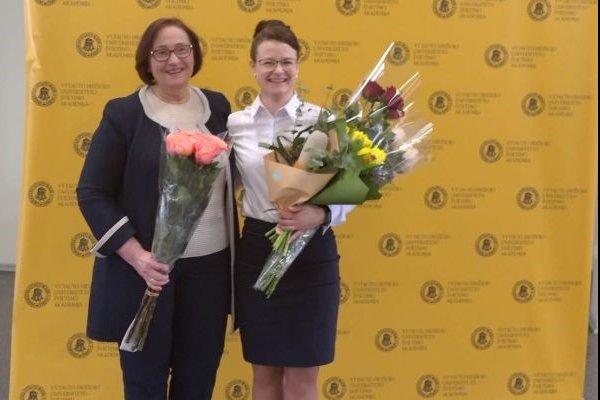
Congratulations to the new doctor Dovilė Lisauskienė on successfully defending her doctoral thesis A Grounded Theory of Socio-Education Through Recreation for Disadvantaged Young People (Educational Science (S 007), scientific supervisor – prof. dr. Lilija Duoblienė) and after acquiring doctoral degree of Social Sciences in the field of Educational Science.
The dissertation can be viewed at Vytautas Magnus University and Lithuanian National M. Mažvydas Library. The dissertation can be viewed at 11 Studentų St., Academy, district Kaunas.
A short annotation of doctoral thesis is presented below.
The dissertation reveals the process of socio-education through recreation for young people with fewer opportunities in non- formal (leisure) environment. The theoretical part of the dissertation analyses the phenomenon of recreation in the socio-educational discourse. Following Crompton’s Evolutionary Pyramid of Benefits, the aspects of recreation as a recognised social value are emphasised. Based on the social constructionist paradigm, the importance of the social environment for the process of socio-education through recreation is highlighted. The socio-educational transformation of recreational content is analysed in the context of the free education paradigm, using the dimension of informal learning. The chapter concludes with the empirical research finding: a new grounded socio-educational theory of the “Invisible Hand” is constructed, the functioning of which is explained by means of Smith’s theory of the “Invisible Hand”.
The methodological part introduces the research strategy of the constructivist grounded theory, identifies the formal and subjective choices of the research strategy, discusses the process of the research: the criteria for the selection of research participants, presents the rationale for data collection, describes the integration of memories in the analysis of the results, introduces the quality assurance of the research results, discusses the ethics of the research, and identifies the study limitations.
The empirical part describes the constructed grounded theory, the ‘Invisible Hand’ socio-educational theory, which reveals the visible process factors and the invisible process of socio-education through recreation.
Dissertation Defense Council:
Chair – prof. habil. dr. Vilma Žydžiūnaitė, social sciences, education S 007, Vytautas Magnus University.
Prof. dr. Eglė Stasiūnaitienė, social sciences, education S 007, Vytautas Magnus University,
dr. Vaida Jurgilė, Social Sciences, Education S 007, Vytautas Magnus University,
Prof. dr. Remigijus Bubnys, Social Sciences, Education S 007, Vilnius University, Šiauliai Academy,
Assoc. prof. dr. Tomas Butvilas, Social Sciences, Education S 007, Mykolas Romeris University.
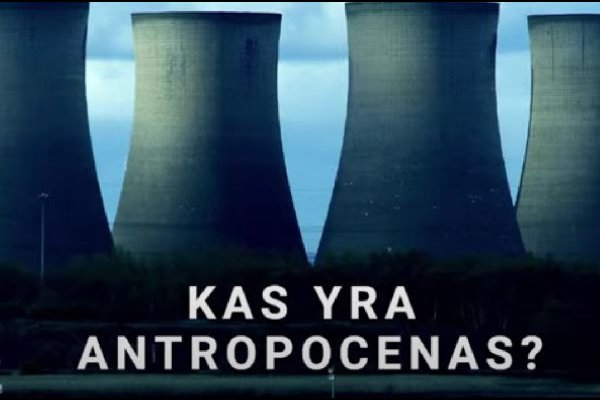
The Education Forum “Challenges for Education and Training in the Anthropocene – What Should We Focus On?” was held on the 23rd of Marchin 2023. The keynote speech “What is the Anthropocene?” was presented by dr. Sandra Kairė (Director of the Institute of Educational Sciences, Vilnius University).
In the discussion participated dr. Vaino Bazdeikis (Director of the National Education Agency Department of Education), dr. Gediminas Čapkauskas (Deputy Headmaster of Kaunas Panemunes Primary School, science teacher, alumnus of the programme “I Choose to Teach”), dr. Kristupas Sabolius (Professor at the Institute of Philosophy, Vilnius University, affiliated researcher at the University of Massachusetts (USA)), dr. Jūratė Žaltauskaitė (Associate professor at the Department of Environmental Protection, Vytautas Magnus University). The forum was moderated by dr. Asta Ranonytė (National Education Agency, Deputy Director) and dr. Sandra Kairė (Director of the Institute of Educational Sciences, Vilnius University). The full recording of the forum available at Youtube channel https://www.youtube.com/watch?v=_1wmoim-fAA
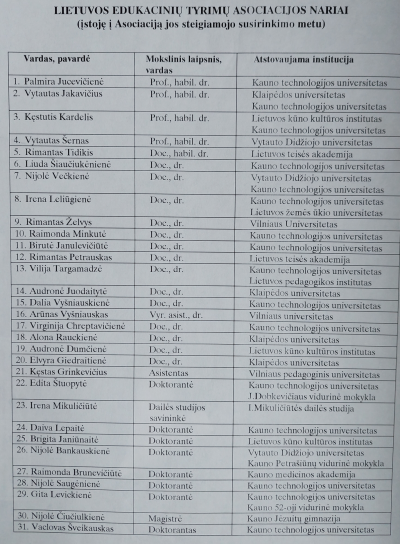
The first members of LERA
On the 24th of March in 2023 Lithuanian Educational Research Association ( LERA) celebrate the 25th anniversary of the founding it. The founding of the Association is undoubtedly joined to the restoration of Lithuania’s independence, when an intensive transformation of the science of pedagogy into educational science began. Lithuanian scientists of Educational Science had the opportunity to participate more actively in international scientific events, to meet and discuss with Western scientists, to develop international cooperation, which led to join to the European Educational Research Association EERA (www.eera.de), which brings together national associations of educational researchers in European countries. It was the initiative of professor Palmira Jucevičienė, Since 24 March 1998. Lithuanian researchers have become members of the European education research community, actively participating in the annual EERA conferences and their organisation, summer schools, the management of the EERA networks, various trainings organised by the association and other academic and organisational activities.
Due to the fact yhat EERA is a collective member of the World Educational Research Association (WERA(www.weraonline.org), all members of the Lithuanian Educational Research Association (LERA) are also WERA members. This provides even wider opportunities for international cooperation, which are increasingly being used by LERA members. Currently, the Lithuanian Educational Research Association has about 300 members, most of whom are Doctors of Education. However, the Association also includes representatives of other disciplines: management, psychology, public health, etc. Education is an interdisciplinary field of research and can be studied from a variety of perspectives and disciplinary approaches. The participation of other disciplines in the Association enriches the Association itself and education research in general. LERA also takes care of early-career researchers in education – all doctoral students in education are welcome to join the association. Most of them have become involved in various LERA activities, receiving care and support from more experienced colleagues.
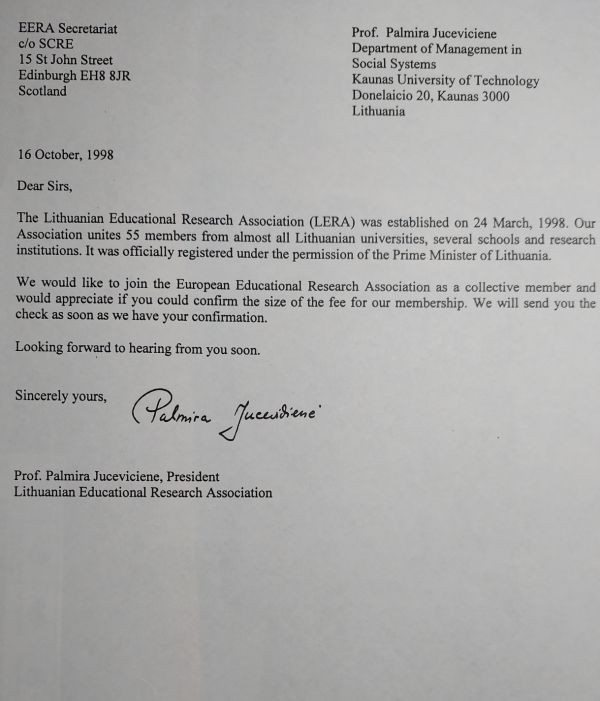
The application of LERA members to become a member of EERA
LERA main goal is to bring together Lithuanian educational research specialists, to combine their efforts in improving educational research, introducing and promoting advanced education and educational practices, and expanding similar relations with international organisations. This objective is pursued in various ways. The main academic event of the Association is the annual LERA Conference. This year, the LERA Conference will be held at Kaunas University of Technology, where the Association was founded. Since 2019, LERA has been organising monthly distance education forums “Educology for Lithuania: Towards Research-Based Education and Training” in cooperation with the Ministry of Education, Science and Sport and other partners. The 23 education forums that have already taken place have presented and discussed the latest research on a wide range of education and learning issues, including content, inclusion, assessment of students’ progress and achievements, sport, arts, pre-school and primary education, training of teachers and researchers, conducting and using educational research, higher education, etc. All forum posts are published on the LERA website, are accessible to a wide range of stakeholders, are attractive and interesting, e.g. some posts have been viewed 1.7 thousand times. LERA delegates its representatives to various working groups and councils at the national level, e.g. the General Education Council, the Council of the National Education Agency, etc. LERA expresses its collective opinion on education and training to the leaders of the Ministry of Education, Science and Sport and political parties, and to the other organisations that take decisions in the field of education. Currently, LERA has 19 networks where education researchers join together according to their interests and work together to carry out activities of interest to them.
Over 25 years, LERA has accumulated a wealth of experience and has become an organisation that is heard not only in Lithuania, but also in Europe and, through it, around the world. Today, the Lithuanian Educational Research Association is a vibrant, active association that sets itself new challenges and ambitious goals, and brings together educational researchers for joint activities to address topical issues in education and development.
Prof. dr. Liudmila Rupšienė
Professor at Klaipėda University
President of the Lithuanian Educational Research Association LERA
+ 370 686 39529
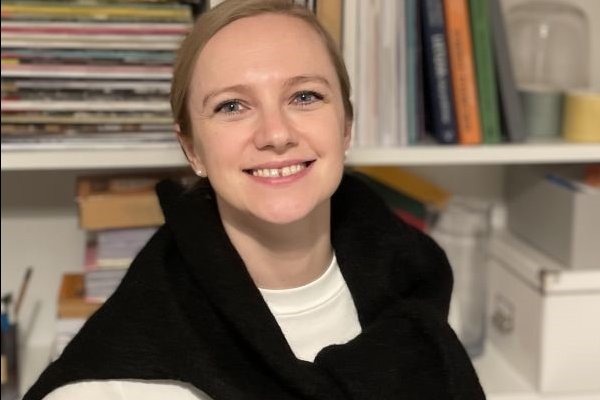
Congratulations to the new PhD Justina Garbauskaitė-Jakimovska on successfully defending her doctoral thesis Becoming Non-Formal education. A Post-Structuralistical Analysis of Non-Formal (Youth) Education (Educational Science (S 007), scientific advisor – prof. dr. Lilija Duoblienė) and after acquiring doctoral degree of Social Sciences in the field of Educational Science.
The dissertation can be viewed at the libraries of Vilnius University, Klaipėda University, Mykolas Romeris University and on the VU website at: www.vu.lt/lt/naujienos/ivykiu-kalendorius.
A short annotation of doctoral thesis is presented below.
The dissertation analyses non-formal education and the experiences of educators using concepts from poststructuralistical philosophy. The aim is to reveal the emergence of educators in the field of non-formal (youth) education and the multiple field they create. The dissertation is written “thinking with theory”. Thinking with theory means first of all analysing the concepts of the French philosophers Gilles Deleuze and Félix Guattari and looking at non-formal education through these concepts. The thesis applies (introduces) some of the concepts proposed by Deleuze and Guattari (becoming, rhizome, multiplicity, affect, nomadicity, territory, mystery) to reflect on aspects of non-formal education that are often overlooked in the field. The chosen structure of the dissertation, starting from the theoretical implications of the NFE and a review of existing research, takes a broad view of the phenomenon of non-formal education, focusing on the links and interactions with other contexts. The work continues by drawing on the personal experience of non-formal education coming from practising educators and learners. By talking about their experiences of the NFE, the research participants confirm what has been said previously about the NFE and expand their knowledge of the NFU field, practices, values and ways of working. This is a return from the personal level to a broader view of non-formal education as an educational phenomenon – multifaceted, diverse, and in a constant state of becoming.
Keywords: poststructuralism, non-formal education, educator, becoming, Deleuze and Guattari.
Dissertation Defense Council:
Chair – assoc. prof. dr. Irena Stonkuvienė (Vilnius University, Social Sciences, Education – S 007);
Associate prof. dr. Jolita Buzaitytė-Kašalynienė (Vilnius University, Social Sciences, Education – S 007);
Prof. dr. Natalija Mažeikienė (Vytautas Magnus University, Social Sciences, Education – S 007);
Prof. dr. Liudmila Rupšienė (Klaipėda University, Social Sciences, Education – S 007);
Prof. dr. Audronė Skukauskaitė (University of Central Florida, USA, Social Sciences, Education – S 007).
